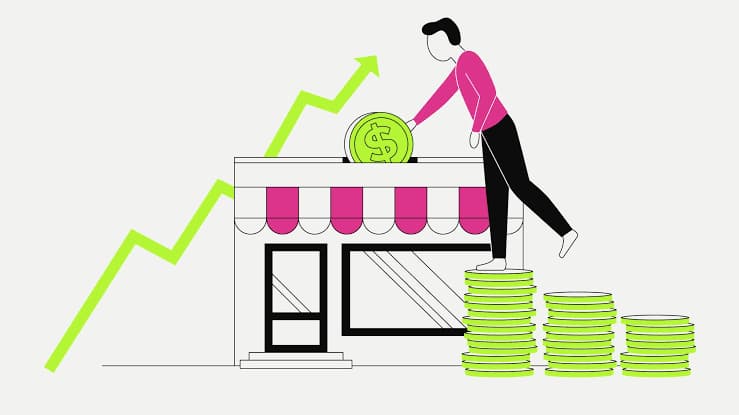Ever felt like you’ve made a silly mistake in the stock market—only to realize later that you acted out of fear or excitement? You’re not alone. In the investing world, the biggest threat to your wealth isn’t always the market—it’s your mind.
This blog explores the fascinating world of behavioral biases: those invisible forces that shape your decisions and, ultimately, your financial future. Let’s decode them and learn how to turn them into your advantage.
Why Do Behavioral Biases Matter?
Before we get into specific biases, let’s understand why they’re so important:
- 📉 Behavior > Market Trends: Even the smartest analysis can fall apart if your emotions take over.
- 🎯 Long-Term Success: Recognizing biases helps you stay rational and focused on your goals.
- 💡 Better Decisions: Knowing how your brain tricks you can help you avoid costly mistakes.
Example:
During the 2020 market crash, many investors panicked and sold at the bottom—locking in losses. Meanwhile, disciplined investors who controlled their biases stayed invested and reaped big rewards as the market bounced back.
Key Behavioral Biases (and How They Show Up in Real Life)
1️⃣ Confirmation Bias – Hearing What You Want
You tend to seek out information that confirms what you already believe.
- Example:
If you think Tata Motors is the next big thing, you might ignore negative news about auto sales and only focus on the good news. - Impact:
This leads to overconfidence and ignoring red flags—potentially causing big losses.
2️⃣ Loss Aversion – Fear of Losing
Studies show that the pain of losing money is twice as strong as the joy of making it.
- Real-Life Scenario:
- You bought a stock at ₹500, and now it’s at ₹400.
- Instead of selling and accepting the loss, you hold on, hoping it will recover—sometimes even when the fundamentals are weak.
- Impact:
This can turn small losses into bigger ones.
3️⃣ Herd Mentality – The Crowd Knows Best… or Does It?
When everyone’s talking about a “hot stock,” it’s tempting to jump in without thinking.
- Example:
During the GameStop frenzy, millions of investors piled in just because “everyone else was doing it.” - Impact:
Following the herd can lead to buying overpriced stocks—setting you up for disappointment when the hype fades.
4️⃣ Overconfidence Bias – I Know More Than I Do
We all like to believe we’re smarter than the market, especially after a few wins.
- Example:
After a few good trades, you might start taking bigger risks—believing you have the “magic touch.” - Impact:
Overconfidence can blind you to real risks and cause poor decision-making.
5️⃣ Anchoring Bias – Stuck in the Past
You fixate on a specific price or number—even if it no longer matters.
- Example:
You bought shares of Infosys at ₹1,500. When it drops to ₹1,200, you’re stuck thinking it should go back to ₹1,500—even if market conditions have changed. - Impact:
This can keep you tied to outdated expectations, instead of adapting to reality.
Case Study: How Biases Play Out in Real Life
Let’s take the story of Sameer, a young investor.
- The Situation:
In 2021, Sameer saw his friend make big gains in cryptocurrency. Without doing much research, he invested a big chunk of his savings in a hyped-up crypto token. - Biases at Play:
- Herd Mentality: He followed his friend and social media hype.
- Overconfidence: He believed he’d get rich quickly.
- Loss Aversion: When the token crashed, he didn’t sell, hoping it would bounce back.
- Result:
Sameer lost over 70% of his investment—an expensive lesson in the power of biases.
How to Outsmart These Biases
The good news? You can overcome these biases. Here’s how:
✅ Slow Down – Don’t make impulsive decisions. Sleep on big trades before hitting “buy” or “sell.”
✅ Seek Diverse Perspectives – Talk to people who see things differently. Read contrarian views.
✅ Set Rules in Advance – Pre-decide your stop-loss, target price, or how much to invest.
✅ Track Your Emotions – Keep an investing journal. Note down why you made each decision—this can help you see patterns.
✅ Learn Continuously – Biases thrive in ignorance. The more you learn, the better your decisions will be.
The Human Side: Why This Matters Beyond Money
Let’s be honest—money isn’t just about numbers. It’s about your dreams, your family’s future, and your peace of mind.
- Controlling your biases isn’t about becoming a robot.
- It’s about making smarter decisions that protect what matters most—your hard-earned money and your long-term happiness.
Conclusion: Your Takeaway
Behavioral biases are like invisible strings that pull at your decisions, often without you even realizing. By recognizing them, you can become a more disciplined, thoughtful investor—one who doesn’t just react to market noise, but acts with purpose and clarity.
Remember:
👉 The market will always be uncertain.
👉 But your biggest edge isn’t a fancy algorithm—it’s your ability to keep your mind clear and your goals front and center.
Ready to invest smarter? Let’s keep this conversation going—your future self will thank you for it.






